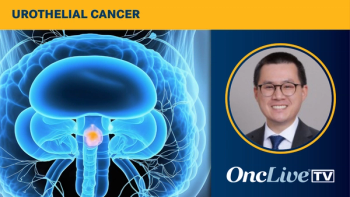
Bone Health Programs in Urology Practices, Part I
Bone health is becoming more of an issue for the community urologists in terms of providing optimal care not only for the prostate cancer patient but also for men with low testosterone or hypogonadism. Although urologists have long understood that significant loss of bone mineral density occurs in prostate cancer patients receiving androgen deprivation therapy (ADT), only recently with the availability of newer, superior therapies has the urology community started to embrace its role in treating bone health complications.
In this panel discussion, Paul R. Sieber, MD, offers his perspective on the benefits of establishing bone health clinics in a urology practice to monitor and treat patients receiving ADT. Another panelist, E. David Crawford, MD, provides his insight into the importance of bone health clinics, emphasizing the need for a multidisciplinary treatment approach. Both physicians stress the importance of the role of the urologist in maintaining optimal bone health for their patients.




































